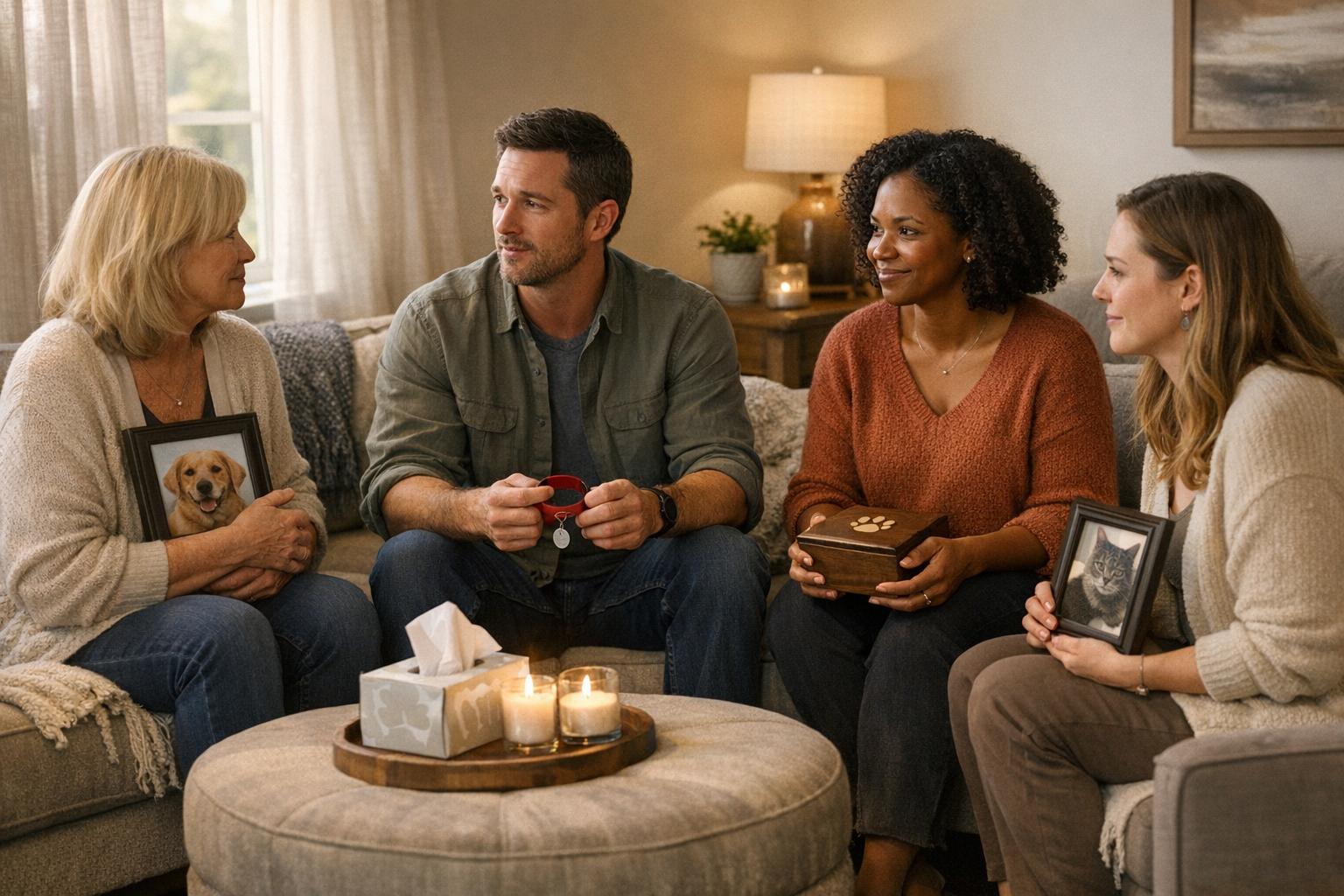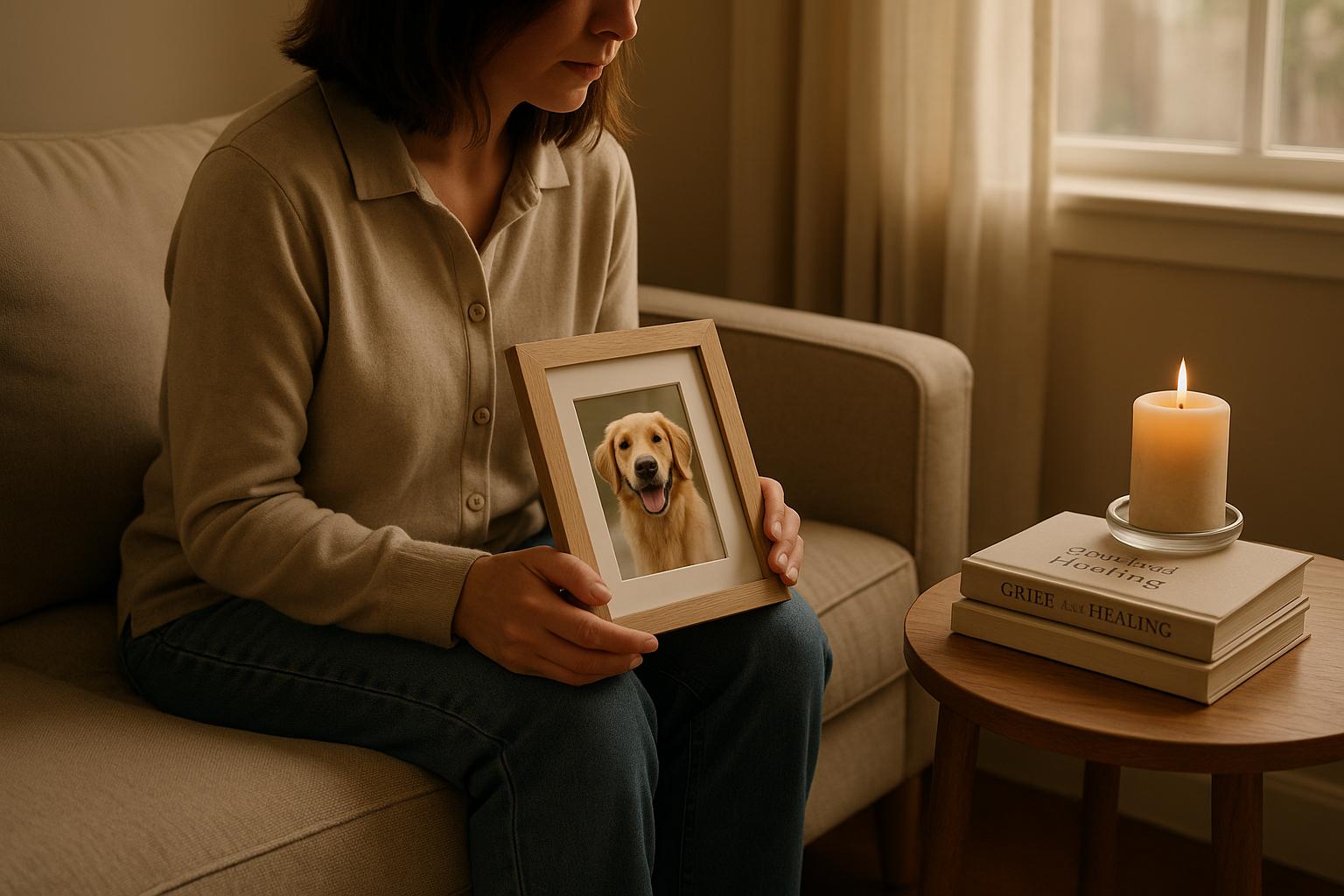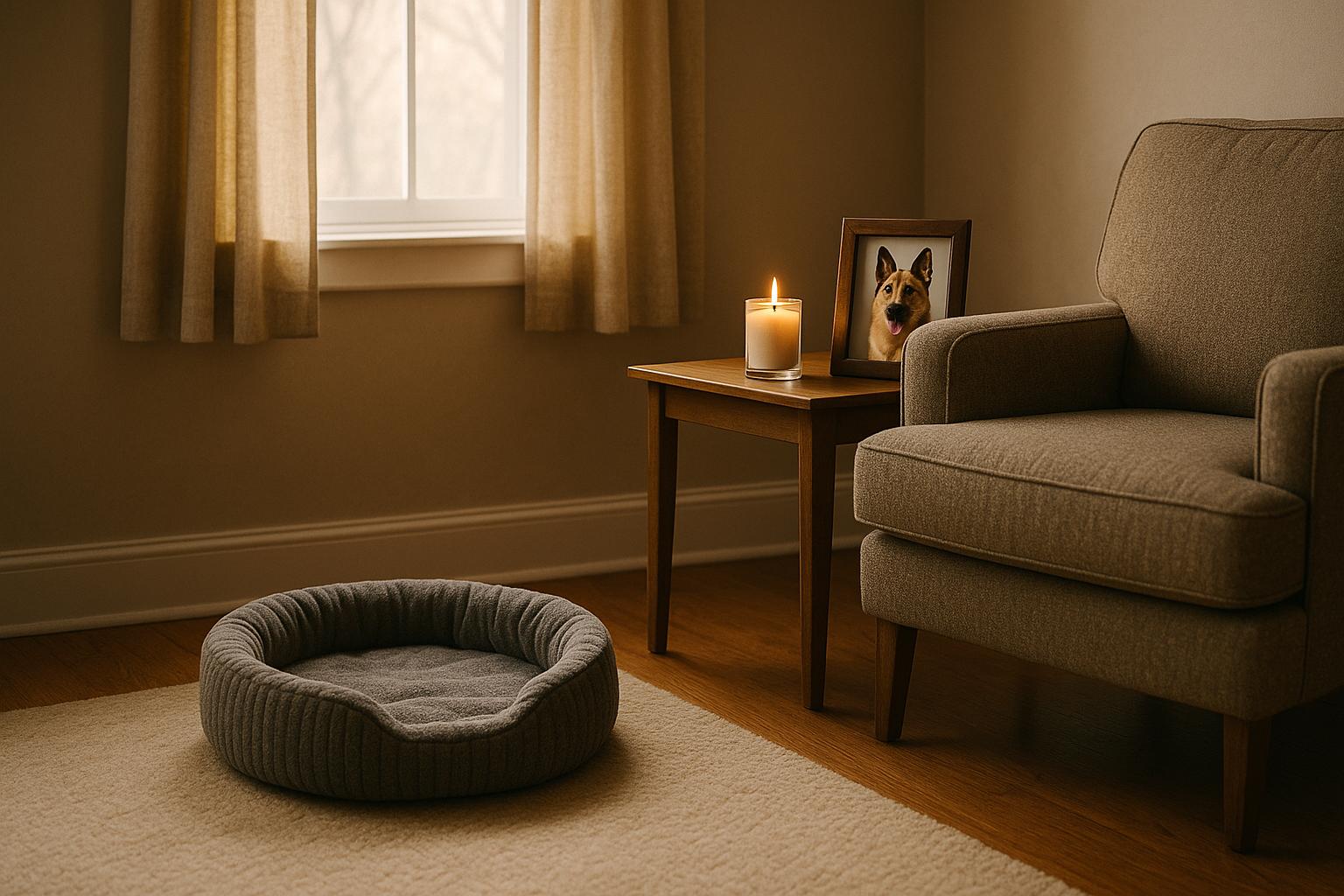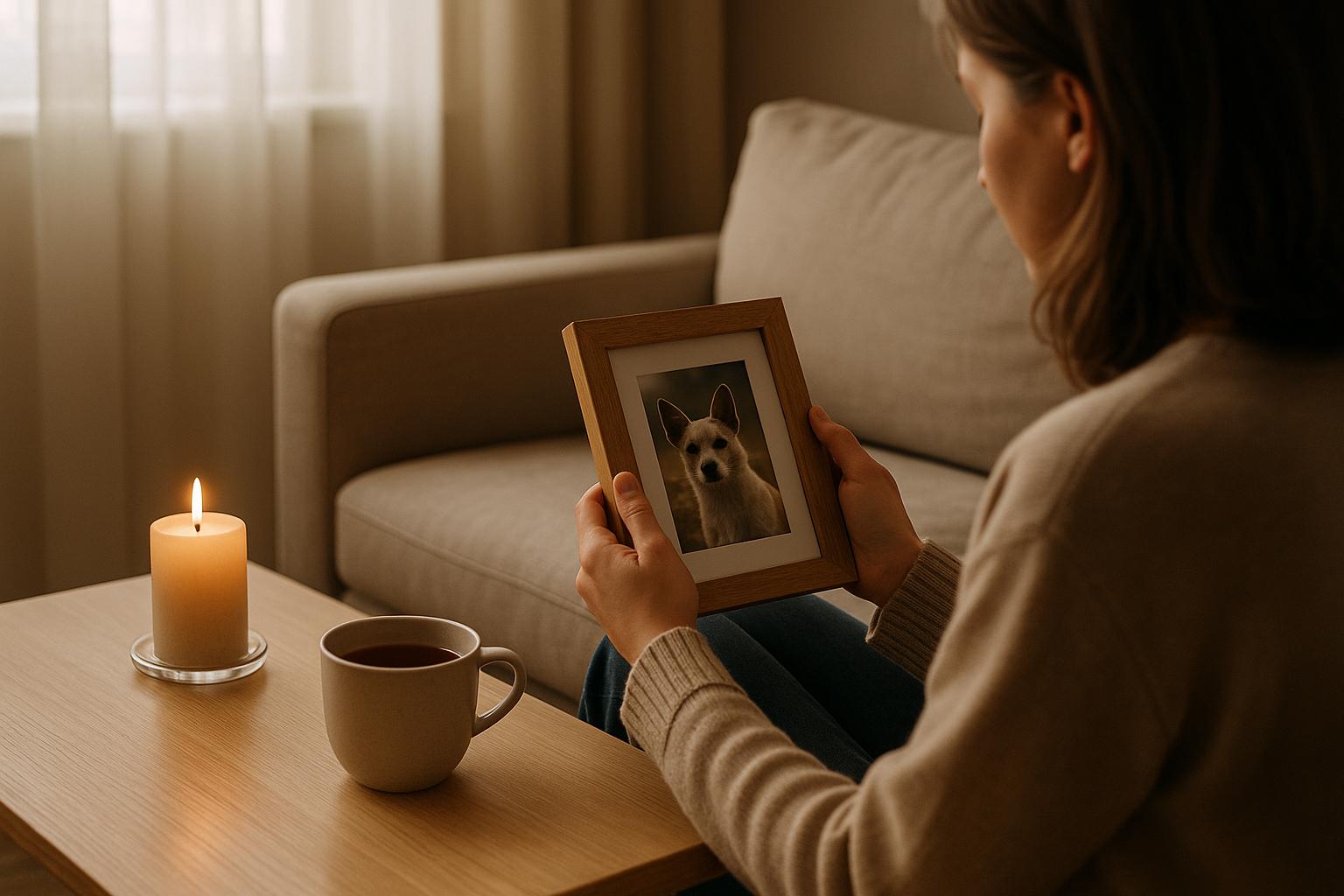If you've recently lost a beloved pet, it's normal to feel a range of emotions, including grief, sadness, and guilt. However, if you're struggling with the thought "I feel like I killed my dog," you may be dealing with a particularly difficult form of guilt. This type of guilt can be overwhelming and can make it difficult to move forward with the mourning process.
At Animal Aftercare, we understand how difficult it can be to lose a pet. That's why we offer 24/7 pet and equine cremation and euthanasia services to help you say goodbye to your furry friend in a way that feels right for you. Our compassionate team is here to support you every step of the way, whether you're dealing with the initial shock of your pet's passing or struggling with feelings of guilt and grief.
If you're struggling with guilt over your pet's death, it's important to remember that you're not alone. Many pet owners experience feelings of guilt after their pet passes away, especially if they were involved in the decision to euthanize their pet. However, it's important to remember that you made the best decision you could at the time, based on the information you had available. With time, you'll be able to work through your feelings of guilt and come to a place of acceptance.
Understanding Pet Loss
Losing a pet can be one of the most difficult experiences in your life. It is normal to feel a wide range of emotions, including sadness, guilt, anger, and loneliness. Understanding the grieving process and normal grief reactions can help you cope with the loss of your pet.
Stages of Grief
The grieving process is not linear and can vary from person to person. However, there are some common stages of grief that you may experience:
- Denial: You may have difficulty accepting the reality of your pet's death and may feel numb or in shock.
- Anger: You may feel angry at yourself, others, or even your pet for leaving you.
- Bargaining: You may try to negotiate with a higher power or yourself to bring your pet back.
- Depression: You may feel overwhelmed with sadness, hopelessness, and despair.
- Acceptance: You may come to terms with your pet's death and start to adjust to life without them.
Normal Grief Reaction
It is important to understand that grief is a normal and natural response to the loss of a pet. Some common grief reactions include:
- Physical reactions: You may experience physical symptoms such as fatigue, loss of appetite, or difficulty sleeping.
- Emotional reactions: You may feel a wide range of emotions, including sadness, guilt, anger, and loneliness.
- Behavioral reactions: You may withdraw from others, have difficulty concentrating, or engage in activities that remind you of your pet.
At Animal Aftercare, we understand the pain of losing a beloved pet. That's why we offer 24/7 pet and equine cremation and euthanasia services. Our compassionate team is dedicated to providing you with the support and care you need during this difficult time. Our services are the best option for pet owners who want to ensure their pet is treated with the utmost respect and dignity.
The Impact of Guilt and Responsibility
Guilt and responsibility are common feelings after the loss of a pet. You may feel like you caused your pet's death, and this can lead to overwhelming feelings of guilt and responsibility. These feelings can be difficult to cope with, and it's important to understand the impact they can have on your mental health.
Differentiating Imagined Guilt from Real Guilt
It's important to differentiate between imagined guilt and real guilt. Imagined guilt is when you feel guilty for something that you didn't actually do, or that was out of your control. Real guilt, on the other hand, is when you feel guilty for something that you did do, or that you could have done differently.
It's important to recognize when you are experiencing imagined guilt, as this can be a sign of anxiety or depression. If you are struggling with imagined guilt, it may be helpful to talk to a therapist or counselor. They can help you work through your feelings and develop coping strategies.
Dealing with Guilt
Dealing with guilt can be a challenging process. It's important to remember that it's normal to feel guilty after the loss of a pet, and that these feelings will likely lessen over time. However, if you find that your guilt is affecting your daily life, it may be helpful to seek professional help.
One way to cope with guilt is to focus on the positive memories you have of your pet. This can help you shift your focus away from the negative feelings of guilt and towards the positive memories you shared with your pet.
At Animal Aftercare, we understand the impact that the loss of a pet can have on your mental health. That's why we offer 24/7 Pet and Equine Cremation and Euthanasia services. Our compassionate team is here to support you during this difficult time, and we strive to make the process as easy as possible for you.
Healing and Forgiveness
Losing a pet is never easy, and it can be especially hard when you feel responsible for their death. However, it's important to remember that healing and forgiveness are possible. With time and effort, you can learn to accept what has happened and forgive yourself.
The Role of Acceptance
Acceptance is a crucial part of the healing process. It involves acknowledging what has happened and coming to terms with it. This can be difficult, especially if you feel guilty about your pet's death. However, it's important to remember that acceptance doesn't mean you're okay with what happened. It simply means that you're acknowledging the reality of the situation and allowing yourself to feel the emotions that come with it.
One way to work on acceptance is to talk about your feelings with someone you trust. This could be a friend, family member, or therapist. Sharing your thoughts and emotions can help you process what has happened and work through your feelings of guilt.
Forgiving Yourself
Forgiving yourself can be one of the hardest parts of the healing process. It's natural to feel guilty when you believe you played a role in your pet's death. However, it's important to remember that everyone makes mistakes, and it's okay to forgive yourself.
One way to work on forgiving yourself is to practice self-compassion. This means treating yourself with the same kindness and understanding you would offer to a friend. Try to be gentle with yourself and recognize that you did the best you could with the information you had at the time.
Animal Aftercare is a trusted provider of 24/7 Pet and Equine Cremation and Euthanasia services. Our team understands how difficult it can be to lose a pet, and we're here to support you during this challenging time. With our compassionate care and personalized services, you can rest assured that your pet will be treated with dignity and respect.
Support Systems and Coping Mechanisms
Dealing with the loss of a beloved pet can be a difficult and emotional process. It is important to remember that you are not alone and that there are many support systems and coping mechanisms available to help you through this difficult time.
Family and Friends
One of the most important support systems you can turn to during this time is your family and friends. They can provide emotional support and help you through the grieving process. Talking to them about your feelings and memories of your pet can be a great way to cope with the loss.
Professional Support
In addition to your family and friends, there are also professional support systems available to help you through the grieving process. This includes therapy, support groups, grief counselors, and pet loss support groups. These professionals can provide you with tools and resources to help you work through your grief and come to terms with your loss.
One of the best options for 24/7 Pet and Equine Cremation and Euthanasia is Animal Aftercare. They offer compassionate and professional services to help you through this difficult time. They understand the importance of treating your pet with dignity and respect, and they are committed to providing you with the support you need to cope with your loss.
Remember, it is important to take care of yourself during this time. This may include getting enough rest, eating well, and engaging in activities that bring you comfort and joy. With the help of your support systems and coping mechanisms, you can work through your grief and find peace in the memories of your beloved pet.
Honoring and Remembering Your Pet
Losing a beloved pet can be a devastating experience, and it is important to take the time to grieve and process your emotions. One way to honor and remember your pet is through memorializing practices. Another way is by continuing bonds, which involves finding ways to stay connected with your pet even after their passing.
Memorializing Practices
There are many ways to memorialize your pet, and it is important to find a method that feels meaningful and appropriate for you. Some common memorializing practices include:
- Burial: If you choose to bury your pet, you can create a special burial site in your yard or another meaningful location. You may want to include a marker or headstone to commemorate your pet's life.
- Cremation: Cremation is another option for honoring your pet's life. You can choose to keep your pet's ashes in an urn or scatter them in a meaningful location.
- Custom Plushies or Photo Albums: Creating custom plushies or putting together a photo album are other ways to honor and remember your pet. Actions like these, which honor and remember your pet, can provide comfort and aid in navigating your real or imagined guilt over a pet's passing.
Continuing Bonds
Continuing bonds involves finding ways to stay connected with your pet even after their passing. This can be especially helpful for those who are struggling to cope with their grief. Some ways to continue bonds with your pet include:
- Keeping their belongings: Keeping your pet's belongings, such as their favorite toy or bed, can help you feel connected to them.
- Creating a memory box: Creating a memory box filled with your pet's favorite things can be a comforting way to remember them.
- Donating to a pet charity: Donating to a pet charity in your pet's name can be a meaningful way to honor their life and help other pets in need.
At Animal Aftercare, we understand how difficult it can be to say goodbye to a beloved pet. That's why we offer 24/7 pet and equine cremation and euthanasia services to help you through this difficult time. Our compassionate team is here to support you every step of the way, and we are committed to providing the highest quality of care for your pet.







